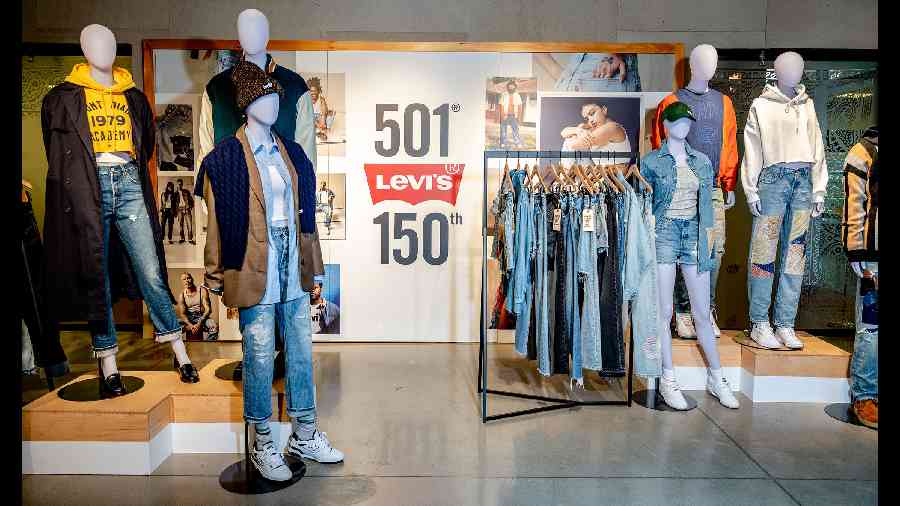Levi’s provoked a backlash after unveiling AI models it claimed would help boost diversity and sustainability.
The fashion brand said it was partnering with Lalaland, a digital studio that uses artificial intelligence to create realistic computer-generated images of various body types wearing its clothing, including its famous denim jeans.
Visitors to the company’s website could only see clothing on a single model at the moment, the company said, but AI would offer them the chance to see the clothes of models who most resemble them.
However, the move has prompted anger, with fashion experts accusing the firm of neglecting real people of colour and false diversity.
“The Levi’s images are not my idea of diversifying fashion,” said Caryn Franklin, a fashion commentator. “The use of AI... feels like a way to cut out diverse models who deserve representation, jobs and exposure. There are many agencies who supply vibrant and exciting humans, so brands have no excuse.”
Joy Suthigoseeya, a designer, said: “How about using AI for the white models and putting more money into the pockets of a diverse workforce?”“Sounds like digital blackface,” added Jennifer Laws, a blogger.
Amy Gershkoff Bolles, Levi’s global head of digital and emerging technology strategy, said AI would “likely never fully replace human models” and the technology “can help us continue on our journey for a more diverse and inclusive customer experience”.
Lalaland, an Amsterdam-based company, says on its website that its AI models are “inspired by real people, generated with AI”. It has also worked with Calvin Klein and Tommy Hilfiger.
In 2022, Levi’s laid off around 15 per cent of its workforce, saving it around $100 million a year. It is not the first company to use AI. Mattel and Coca-Cola are using tools such as DALL-E and ChatGPT. Coca-Cola’s most recent advertising campaign combined AI with the works of some of the world’s greatest artists, such as Utagawa Hiroshige’s Drum Bridge and Setting Sun, J.M.W Turner’s The Shipwreck and Van Gogh’s Bedroom in Arles. At one point in the advert, Vermeer’s Girl With A Pearl Earring opens a bottle of the soft drink.
Other firms have looked at using AI, with mixed results. In August, Capitol Records signed and then fired FN Meka, the AI rapper, after criticism that the character promoted “gross stereotypes” of black culture.
The Daily Telegraph, London











